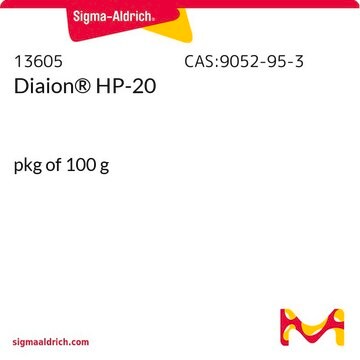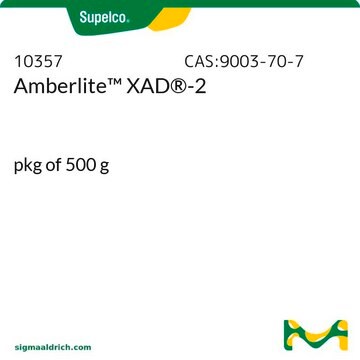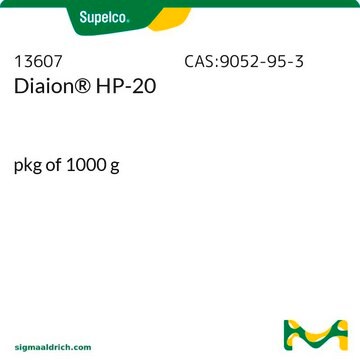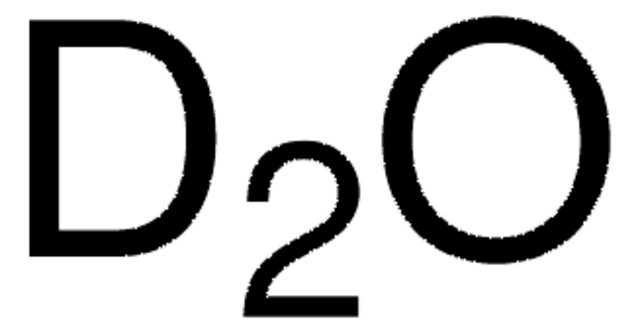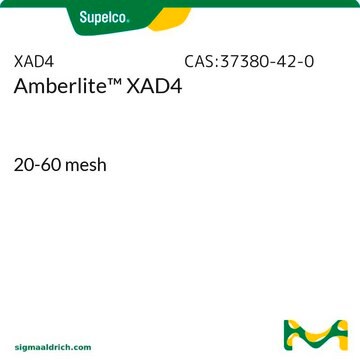468312
Poly(styrene-co-divinylbenzene) Polymeric Adsorbent
microspheres, 1400-2500 mesh
Synonym(s):
Polystyrene crosslinked with divinylbenzene
About This Item
Recommended Products
Product Name
Poly(styrene-co-divinylbenzene), microspheres, 6.0-10.0 μm avg. part. size
form
microspheres
Quality Level
technique(s)
LPLC: suitable
thin layer chromatography (TLC): suitable
surface area
500 m2/g
matrix
Poly(styrene-co-divinylbenzene)
matrix active group
polymer
avg. part. size
6.0-10.0 μm
pore size
60 Å mean pore size
separation technique
reversed phase
SMILES string
C=Cc1ccccc1.C=Cc2ccc(C=C)cc2.C=Cc3cccc(C=C)c3.C=Cc4ccccc4C=C
InChI
1S/C10H12.C10H10.C8H8/c2*1-3-9-7-5-6-8-10(9)4-2;1-2-8-6-4-3-5-7-8/h3,5-8H,1,4H2,2H3;3-8H,1-2H2;2-7H,1H2
InChI key
NWUYHJFMYQTDRP-UHFFFAOYSA-N
Looking for similar products? Visit Product Comparison Guide
Related Categories
General description
Application
- in separation media for TLC, paper and LPL chromatography
- as adsorbent
- as matting agent for coatings, anti-blocking and lubrication additive for films and filler for ceramics, cosmetics and dental materials
Storage Class Code
11 - Combustible Solids
WGK
WGK 3
Flash Point(F)
Not applicable
Flash Point(C)
Not applicable
Personal Protective Equipment
Regulatory Listings
Regulatory Listings are mainly provided for chemical products. Only limited information can be provided here for non-chemical products. No entry means none of the components are listed. It is the user’s obligation to ensure the safe and legal use of the product.
JAN Code
468312-100G:
468312-BULK:
468312-VAR:
468312-250G:
Choose from one of the most recent versions:
Already Own This Product?
Find documentation for the products that you have recently purchased in the Document Library.
Our team of scientists has experience in all areas of research including Life Science, Material Science, Chemical Synthesis, Chromatography, Analytical and many others.
Contact Technical Service
